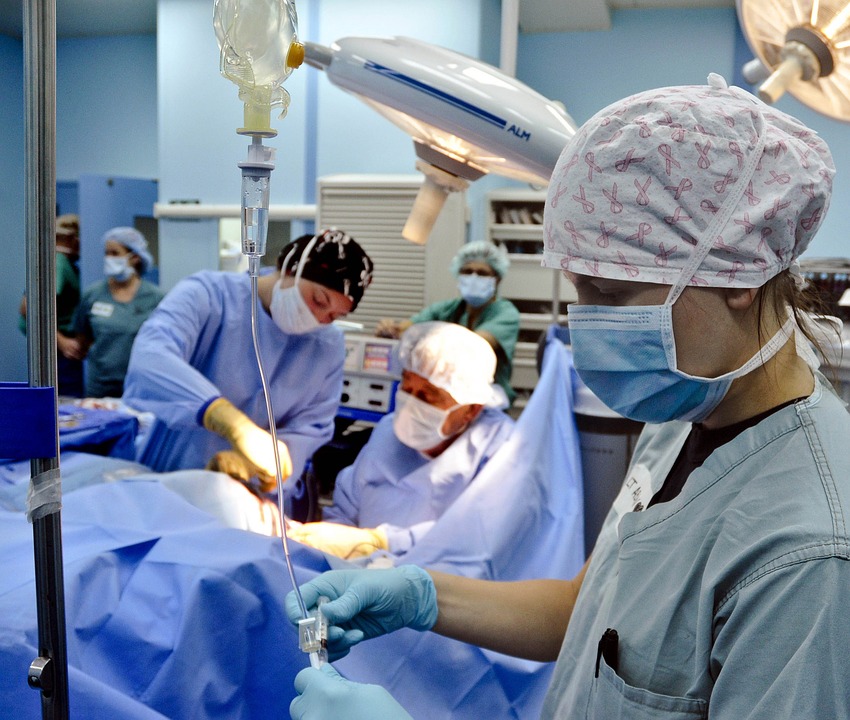
Every time a mistake happens in a surgery center, which is becoming less and less, there is a near-immediate assessment of where things went wrong. The staff looks at every step of the pre-, intra-, and post-surgical procedures to fix what caused the problem. The reason that so many strides have been made regarding infection rates is because the medical community is quick to implement steps to avoid having anything happen twice.
Solutions like Cidex OPA are being widely embraced by the medical community because the nature of a microorganism is to become resistant. Mycobacteria, in particular, will mutate and resist requiring constant awareness and the introduction of newer, stronger products to establish sterilization and to disinfect all surgical areas as well as instruments. Responses need to be quick, so solutions, like Cidex, that don’t require mixing or preparation of any kind, are ideal as they can be put to use right out of the bottle.
The bacteria that are living in healthcare facilities, and constantly mutating, are an absolute invisible force committed to survival, which is a big problem for them the world over. This is why there are steps to take for every person working in a surgical setting to reduce the incidence of infection. Every piece of equipment also needs to be germ-free.
Personal Protective Equipment
Every article of PPE any medical professional puts on has a method as to exactly how to put it on to maintain sterilization and avoid contamination. Right down to the face mask, which is put on in order relative to gloves, gowns, and shoe coverings, there is a particular way in which to put that mask on.
Just as every piece of PPE is put on in a methodical manner, it is removed in a similar fashion. Everything is removed, in order, and disposed of in a particular way as the understanding is that once worn, the outside of each piece of PPE is contaminated with bacteria. Avoiding the spread of bacteria by just ripping off a surgical gown is absolutely imperative as we know that bacteria spread through the air. It is widely known that this is how bacteria get easily spread, which is entirely avoidable.
Hands-Above-the-Waist
Every person working in an operating room has to scrub and get ready for surgery. Once ready, one cannot let their hands go below their waist, and if this does happen, a sterile field has been contaminated and all steps must be taken again to reestablish sterility.
Infection rates are very closely monitored by all healthcare facilities, as well as large insurance concerns like Medicare, as well as the Center for Disease Control. Unfortunately, infection has been an issue in the past, and the goal of every single healthcare organization is to steadfastly work toward bringing that number to zero.
It is also a standard in most facilities to sing happy birthday while hand-washing to make sure hands have been washed for the proper amount of time. There is even a method to turn the water on and off, as well as disposal of towels used to dry hands. There is an established, critically important step to every possible facet of achieving, and maintaining, sterilization.
Doctors and Physicians Assistants
Any person that is coming into contact with a patient must scrub down, from their elbows, with specific soap and then a member of the surgical staff will put their gloves on for them. This again is critically important to preserving sterilization and keeping infection rates low. If a doctor, for any reason, is seen as having contaminated a sterile field, procedures are in place to have a repeat scrub down and a new set of gloves are opened and applied.
Scrub Nurses
Scrub nurses do a very important job in all surgical settings. They are charged with the task of keeping track of every single surgical instrument by doing a double-count, with 2 people present, to arrive at a total number of surgical instruments they had at the beginning of surgery. There have been cases where surgical instruments have gone missing and were later discovered that they were left inside a patient.
This leads to all different kinds of opportunities for bacteria, not to mention a horrifying experience for a patient, so scrub nurses work to make sure every single instrument is accounted for before a patient is sutured.
Charge Nurse
Every facility has the equivalent of operating room charge nurse and that one person is charged with the task of calling off a surgery if they feel there has been a violation to aseptic procedures, and contamination has occurred. It is important to have checks-and-balances in every aspect of an operating room, among all staff, so there is hopefully never an abuse of power.
Safety and security of patients in all surgical settings is critically important. Products like Cidex are revolutionary toward killing off bacteria that the traditional glutaraldehyde products are not effective against, and having a staff committed to excellence will eventually lead to implementing practices that are going to drive down infection rates.
There are valiant efforts being made, in the entire medical community, to take every step necessary to get infection rates to zero, in all settings, which is an entirely feasible goal.